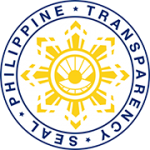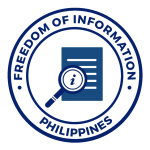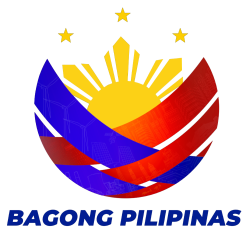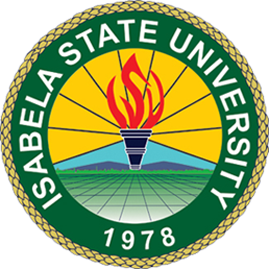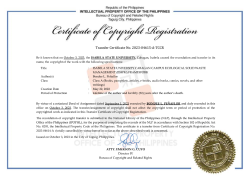 One of the pressing environmental concerns nowadays is the problem on solid wastes and the society has a great interest on the interconnected effects posed by this issue. As the population continues to grow, so goes with the solid wastes generated by the growing population. This dilemma, if not being addressed will put communities into peril and this will have cascading effects which will be experienced not only by the present generation but also by the succeeding ones.
One of the pressing environmental concerns nowadays is the problem on solid wastes and the society has a great interest on the interconnected effects posed by this issue. As the population continues to grow, so goes with the solid wastes generated by the growing population. This dilemma, if not being addressed will put communities into peril and this will have cascading effects which will be experienced not only by the present generation but also by the succeeding ones.
The national government has come up into interventions to regulate and to address this concern since the start of the 1990s. The Local Government Code of the Philippines (R.A. 7160 of 1991), particularly Section 3 (Operative Principles of Decentralization), mandates that the local government units shall share with the national government the responsibility in the management and maintenance of ecological balance within their territorial jurisdiction, subject to the provisions of the Code and national policies. In addition, Sections 16 and 17, mandate to promote health and safety, preservation of the comfort and convenience of its inhabitants, and to provide solid waste disposal system and services or facilities related to general hygiene and sanitation. In support to this mandate, the enactment of the Republic Act 9003, otherwise known as the Ecological Solid Waste Management Act of 2000, which has primary mandates of directing to segregate waste from where it is generated, provide Material Recovery Facility (MRF) as storage for collected and segregated waste and dispose residual materials in environmentally accepted disposal facilities.
To this end, ISUC has directed its attention at complying into policies and/or regulations about the concerns on solid wastes. This is to secure its local populace from the menace that the problem on solid wastes could bring forth. Moreover, this is in support to the mandate of the government as stipulated in Article II, Section 16, of the Philippine Constitution which states that “The State shall protect and advance the
right of the people to a balanced and healthful ecology in accord with the rhythm and harmony of nature.” In so doing, ISUC, with its aim at providing a healthy and safe environment for its constituents, responded and took the challenge of creating a framework that shall ISUC ESWM Framework, Page 2 of 5 serve as a guide in strictly adhering to the mandates in accordance with the national (and even local) laws particularly RA 9003. This will ensure that ESWM will be implemented in the Campus so that it will become an ideal place to live in that is free from any source of pollutions
Further, a comprehensive ecological solid waste management program is needed in order to satisfy the requirements set forth by existing laws and to ensure that proper solid waste management is in place. Figure 1 presents the overall framework for the management of solid wastes in Isabela State University Cabagan Campus. The Isabela State University Cabagan Campus Solid Waste Management Program has five pillars, namely: Scientific Studies; Institutional Policies and Platforms; Centralized Materials Recovery Facility; Production of Innovative Products; and Patent, Publication, Marketing and Extension.
View Full Text of the Program: Campus Ecological Solid Waste Management (ESWM) Framework

